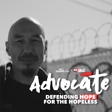
The Glamorization of Exploitation | Trafficking Free America Podcast
In this bold and deeply personal solo episode, Oree Freeman confronts a dangerous and often overlooked reality: the glamorization of human trafficking and exploitation in music, media, and digital culture.
Oree shares raw stories—from her own experience and what she sees online every day—about how glamor, money, and false empowerment are being used to draw young people into systems of abuse. She calls out how pop culture, social platforms, and "choice-based" narratives are influencing laws, funding, and public awareness—while ignoring the real, devastating cost.
This is more than a conversation. It’s a call to stop applauding the lie and start exposing the truth.
🔔 Subscribe for more hard but healing conversations 🌐 Learn more: https://www.usiaht.org ❤️ Become an Abolitionist: https://usiaht.org/donate/
⏱ Timestamps
00:00 – Girls flashing money, kids watching, glamorizing exploitation
00:28 – What we’re talking about: glamorization in music, film, social media
01:36 – How trafficking became a “hot topic” like other social issues
03:00 – Why victims weren’t offered help—because it looked like a choice
03:40 – Growing up watching “pimp culture” in music videos
04:45 – Films focus on foreign abduction, not domestic street realities
05:41 – Why some stories aren’t told—they’re not “theatrical” enough
06:31 – OnlyFans and false freedom: it looks like choice, but it’s not
07:33 – The audience is part of the problem—what we watch, fund, and like
08:47 – The lie of control: glamor, addiction, and indoctrination
10:00 – “Feet pics” and false empowerment—how it leads to bondage
11:04 – Girls glamorizing “the blade”—16-year-olds are watching
12:15 – What that lifestyle really led to: addiction, abuse, and emptiness
13:05 – Even hard-fought bills are being pushed back by glamorized narratives
14:43 – Oree’s personal story: walking into her trafficker’s house at 11
15:57 – The recruiting power of glamor: “I want that life”
16:47 – You may be recruiting someone, even unintentionally
17:50 – We need better media: ethical, truthful, unfiltered storytelling
18:53 – Oree’s mom at age 9 wanted to be a prostitute—this is generational
19:44 – This isn’t just about cages overseas—this is happening here
20:32 – A message to those who think they’ve “chosen” the lifestyle
21:07 – You are worthy. You are a treasure. Choose something better.
21:48 – Upcoming episodes will include voices with different perspectives
🔑 Key Takeaways
- Glamor is being weaponized—and traffickers are not the only ones doing it
- False freedom on platforms like OnlyFans often masks real exploitation
- We need better stories, not just more content—truth-telling can save lives
- You are accountable for what you watch, fund, and share
- You are worth more than a lifestyle that glorifies trauma
🎧 If this episode made you think...✅ Like & comment your thoughts ✅ Share with someone who needs to hear the truth ✅ Join the movement—$15/month helps us reach the next generation
Let’s replace glamor with truth and build a Trafficking Free America together.
#TraffickingFreeAmerica #OreeFreeman #SurvivorVoices #EndExploitation #USIAHT #GlamorizationKills #OnlyFansAwareness #AntiTrafficking #SurvivorLeadership #RealTalk

